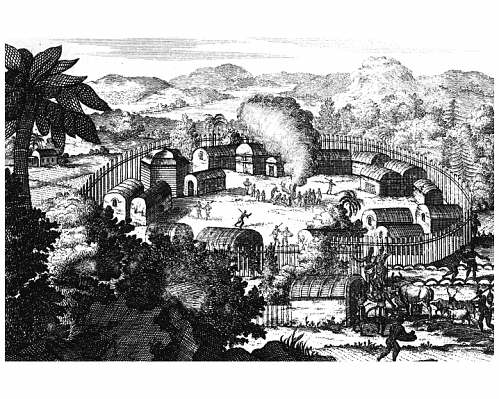Characteristics of the Iroquoians
-
Iroquois villages were generally fortified and large. The distinctive,
communal longhouses of the different clans could
be over 200' in length and were built over a framework covered with elm
bark.
-
The Iroquois had a matriarchal
social structure meaning the women owned all property and determined kinship.
After marriage, a man moved into his wife's longhouse, and their children
became members of her clan.
-
They were sedentary, which means they had a way
of life that involved living in a permanent community. Their villages were
permanent in that they were moved only for military defensive purposes
or when the soil became depleted (about every fifteen to twenty years).
-
Agriculture provided most of the Iroquois diet.
Corn,
beans, and squash were known as "deohako" or "life supporters."
-
The women owned and tended the fields under the
supervision of the clan mother. Men usually left the village in the fall
for the annual hunt and returned about midwinter. In the spring the men
fished.
-
Like the Algonquians, the Iroquoian religion was based on the worship
of a great spirit who had power over the lives of all living things.
-
It was the Iroquois political system, however,
that made them unique, and because of it, they dominated the first 200
years of colonial history in both Canada and the United States. The Iroquois
prevailed because of their unity, sense of purpose, and superior political
organization.
Do the following questions on Topic 1: Sociocultural
Organization |

